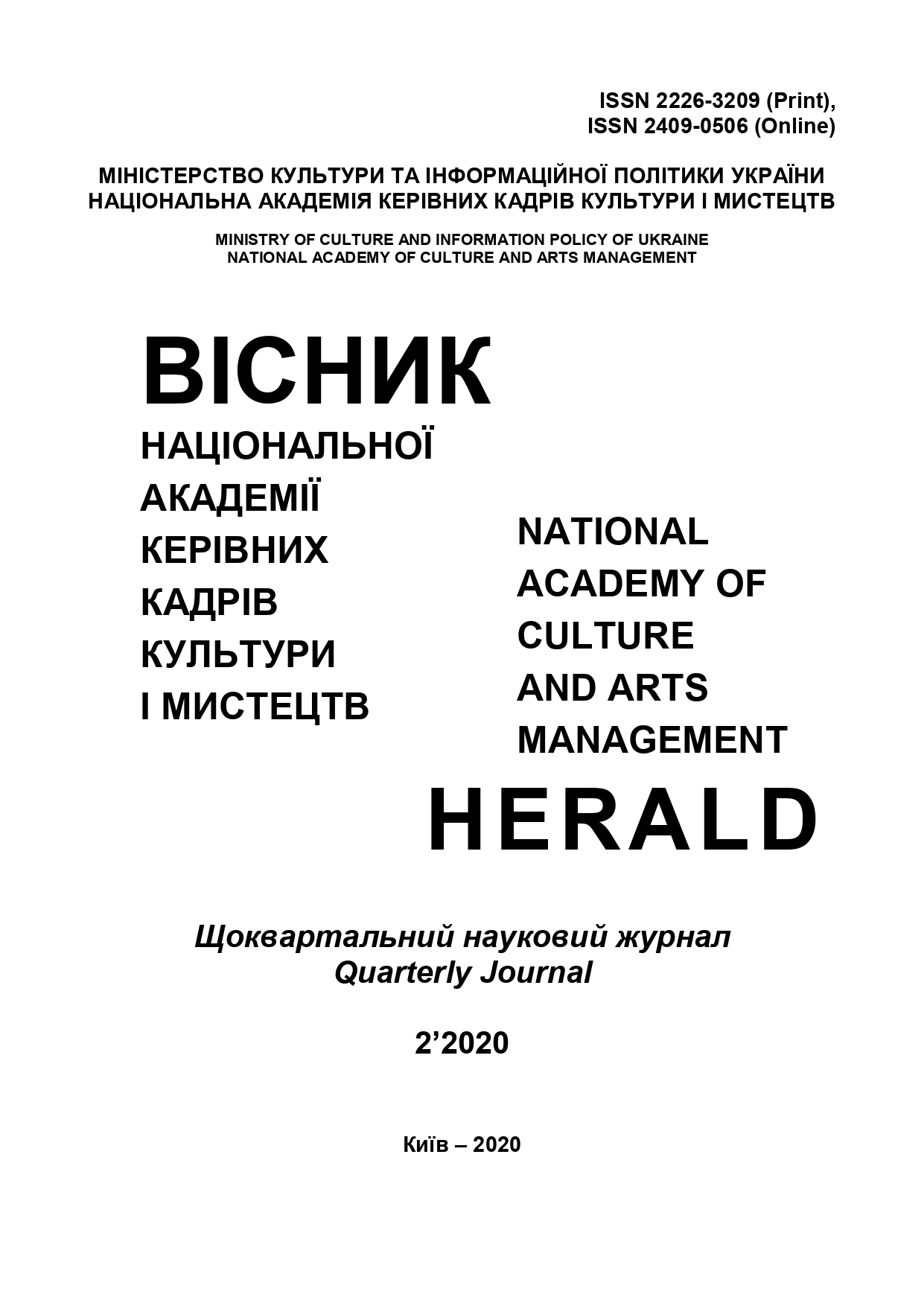The role of environmental and ethnic experience in the culture of natural use as a factor of the national self-identification of the Ukrainian people
The role of environmental and ethnic experience in the culture of natural use as a factor of the national self-identification of the Ukrainian people
Author(s): Tetiana TsoiSubject(s): Ethics / Practical Philosophy, Sociology of Culture, Environmental interactions, Identity of Collectives
Published by: Національна академія керівних кадрів культури і мистецтв
Keywords: ecological and ethnic experience; ecological culture; ethnos; national identity; universal macroethics;
Summary/Abstract: The purpose of the article is to determine the role of ecological and ethnic experience in the culture of the natural resources of the Ukrainian people for the formation of the modern ecological culture of the nation. The methodology is based on the interdisciplinary integration of philosophy, ecology, ethics, and cultural studies. The scientific novelty is determined by the relevance of comprehension of the intersection of "ethnic" and "ecological" for the formation of the modern ecological culture of Ukrainian society, which is a significant factor of national self-identification. Conclusions Involvement of the traditional ecological and ethnic experience of the individual people is an important factor for its further development since one of the essential indicators of the stability of the development of national culture should be the ethnic and ecological orientation, that is, the use of ethnic and ecological traditions, on the basis of which innovative processes can be built up and go to the future. In order to adequately perceive the provisions of universal macroethics, it is necessary to take into account environmental principles and in practice take into account the meanings laid down in our spiritual tradition. It is important to realize not only the need to engage in the global civilizational space but also to anticipate the risks involved in such inclusion. Not least last, it's about national self-identification as a counteraction to global unification.
Journal: Вісник Національної академії керівних кадрів культури і мистецтв
- Issue Year: 2020
- Issue No: 2
- Page Range: 48-51
- Page Count: 4
- Language: English

